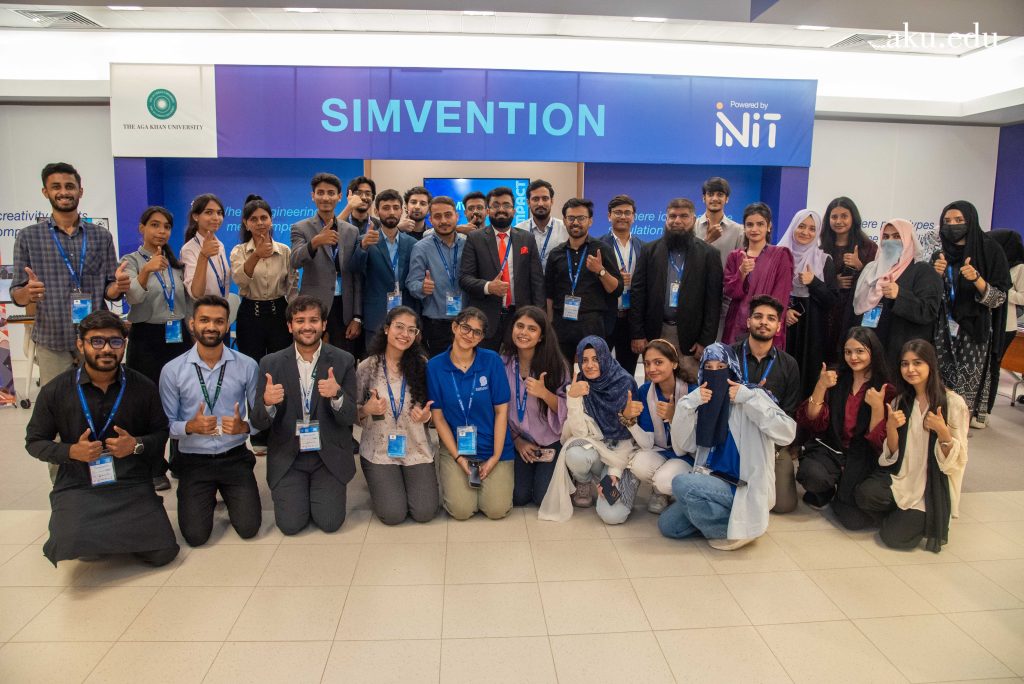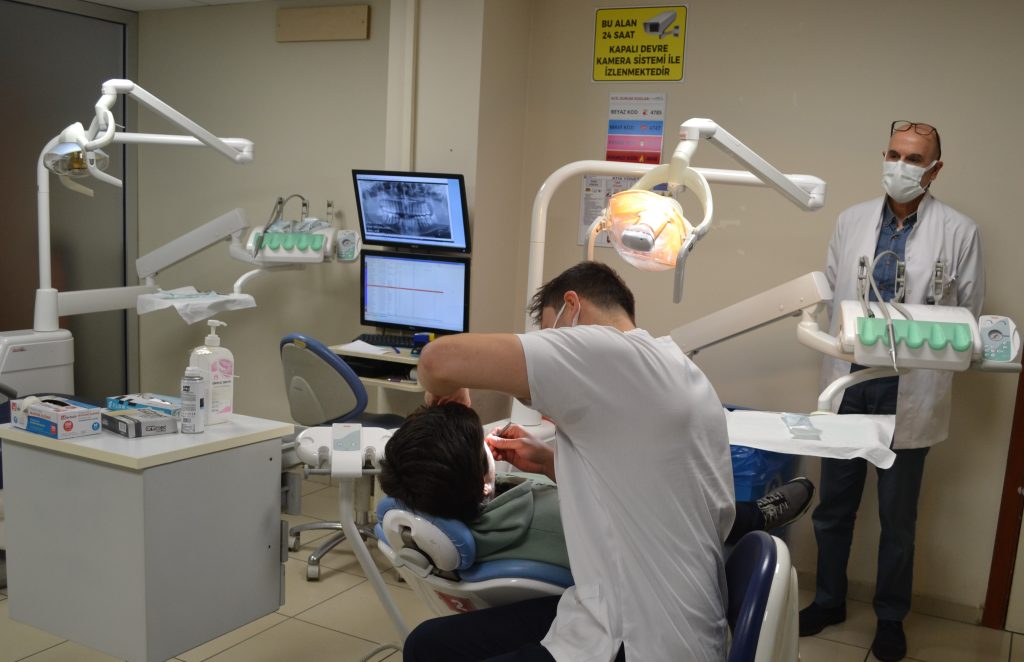In this interview Nataliia Lopina, founder of ClinCaseQuest, shares her inspiring journey from academia to entrepreneurship in the healthcare simulation industry. She discusses the innovative approach behind ClinCaseQuest, the challenges of balancing personal life and business, and her vision for revolutionizing medical education with advanced simulation technologies and AI integration.

Nataliia Lopina
Nataliia Lopina, ClinCaseQuest’s CEO and Founder, cardiologist. She developed a mathematical model based on stratifying the severity of medical errors for clinical simulation and a defragmented debriefing model. SESAM recognizes defragmented debriefing as Advances in Simulation in 2024.
Hi Nataliia, we are delighted to have you join us as we continue our journey to highlight women entrepreneurs in education and healthcare simulation. Can you share a bit about your journey to becoming an entrepreneur in the healthcare simulation industry?
I began my career deeply rooted in academia at Kharkiv National Medical University, where I earned a Master’s degree and later a Ph.D. in Internal Medicine. As an emergency cardiologist and an assistant professor at the Department of Internal Medicine, I was immersed in both clinical practice and medical education. However, the onset of the COVID-19 pandemic highlighted the urgent need for advanced online clinical simulation training. This realization propelled me to found ClinCaseQuest, where I developed a unique concept of cognitive branching for clinical simulation. This approach integrates a mathematical model that stratifies the severity of medical errors with a defragmented debriefing model, enhancing the realism and educational value of medical simulations.
I think there is quite a lot of competition in your business field. What’s special about ClinCaseQuest?
Indeed, the healthcare simulation industry is highly competitive. What sets ClinCaseQuest apart is our innovative approach to simulation training. We employ a mathematical model that stratifies the severity of medical errors, integrated with a defragmented debriefing model, that helps us build an adaptive personal experience for our learners. This combination results in gaining clinical experience like in own real clinical practice and also enhances learning by allowing users to critically analyze medical errors and strengthen the cognitive connections essential for developing competencies. This strategy ensures that the experience gained through our simulations translates effectively into practical skills. SESAM recognizes defragmented debriefing as Advances in Simulation in 2024.

If you were to look back at the past, what was the exact moment when you decided to become an entrepreneur and found ClinCaseQuest?
I believe the seeds for ClinCaseQuest were planted early in my childhood. Even as a child, I was passionate about creating games; I would sketch out prototypes and game mechanics, and play doctor with my dolls, running a small makeshift hospital. This early interest in medicine and simulation blossomed during my clinical practice and academic tenure at the medical university. There, I closely observed the limitations of traditional training systems and the urgent needs of clinical practice. The turning point came with the onset of the COVID-19 pandemic. It highlighted the critical need for high-quality simulation training that was independent of the trainer’s skill level and could standardize the learning experience across various settings. This spurred me to integrate my clinical insights with my vision for effective educational methodologies, ultimately leading to the founding of ClinCaseQuest.
How do you balance the demands of entrepreneurship with your personal life?
Balancing entrepreneurship with my personal life is a continuous learning curve for me. As a mother of two wonderful boys, I often liken my startup to having a third child—it demands constant attention and care. Despite these challenges, my deep affection for my family and my work helps me find equilibrium. I strive to ensure that each can thrive and lay a strong foundation for the future. It’s about prioritizing, planning, and sometimes, allowing myself to embrace the chaos that comes with juggling these roles.
What does it mean to be an entrepreneur in Ukraine?
Being an entrepreneur in Ukraine, particularly during these challenging times, is a blend of unique opportunities and significant challenges. The ongoing war has led to a substantial exodus of foreign medical students who traditionally bolster the medical education sector. Despite these challenges, the war has also enriched the practical and clinical experience of our medical and educational institutions.
Our engagement with higher education institutions is currently non-commercial; it’s focused more on scientific collaboration and practical support to help sustain traditional educational systems through these turbulent times.
At the same time, there are significant opportunities for obtaining grant funding available to Ukrainian entrepreneurs, and for us, this represents a great chance to continue our development.
I appreciate being an entrepreneur in Ukraine because the high level of digitalization simplifies and streamlines many operational processes. Ultimately, sustaining and developing businesses now is crucial for the future recovery and growth of Ukraine.


Who have been your mentors or role models on your path to entrepreneurship?
My concept of a mentor is more of a collective image, as I view everyone I meet along my journey as a mentor. I am profoundly grateful for the support from our startup ecosystem in Ukraine, which fosters mutual development and learning. Significant mentorship and support have been provided by the Ukrainian Startup Fund and the EEN Ukraine consortium, notably by its General Director, Olena Fesenko.
We benefit greatly from being integrated into vibrant startup ecosystems in Baden-Württemberg, Germany. Notable programs that have shaped our growth include the Life Science Accelerator in Heidelberg, the Onboarding Medical Startup Program at CUBEX ONE in Mannheim, and the ERASMUS FOR YOUNG ENTREPRENEURS. We’ve also been supported by the European Institute of Innovation and Technology, eō Business Incubators, SILab Ukraine, Civitta Ukraine, and the Europe Innovative Council through the HORIZON-EIC-2024-ACCELERATOR coaching program, among many other mentors.

Based on your experience, what is the biggest mistake one could make when thinking about starting a business in healthcare education and simulation?
One common mistake is expecting rapid monetization in the field of healthcare education and simulation. It’s important to understand that this sector is more akin to a marathon than a sprint. Building a reputation and forging strong connections takes time, which are crucial for long-term success. Moreover, due to the critical nature and responsibility inherent in healthcare education, it’s essential to focus on scientific validity and the effectiveness of the educational products offered.
How does a small or medium-sized business make itself known?
To enhance visibility, we’ve developed a multi-channel communication and interaction environment. We actively participate in scientific conferences, publish articles, and engage in collaborations to showcase the scientific novelty and value of our approach. This not only demonstrates our expertise but also our commitment to advancing medical education.
Additionally, we focus on building a robust online presence. Our simulation platform not only serves as a training tool but also supports clinical decision-making in real clinical practice, bridging the gap between traditional training and actual clinical practice. We optimize our platform for organic search traffic, ensuring that it’s accessible to healthcare professionals seeking practical, real-world applications.
Furthermore, we leverage digital marketing strategies such as content marketing, social media engagement to reach a broader audience. This integrated approach ensures that our platform is not just known but trusted by the medical community for its practical and educational benefits.

Looking forward, what new goals are you setting for yourself and your company in the next few years?
Looking ahead, we have ambitious goals for expanding ClinCaseQuest both technologically and geographically. Our primary aim is to integrate our algorithms with cutting-edge technologies such as artificial intelligence, virtual reality, and augmented reality. These enhancements will enable us to simulate even more realistic and complex medical scenarios, thereby improving the training and decision-making capabilities of healthcare professionals globally.
In terms of expansion, we are focused on entering new markets in Europe, North and South America, Australia, Africa, and Asia. Our strategy involves forming collaborations with leading medical educational institutions and simulation centers worldwide. By partnering with these entities, we aim to adapt our offerings to meet diverse educational needs and standards across different regions.
These goals will drive our efforts to not only expand our reach but also to continue innovating in how medical education and simulation can be delivered and experienced around the world.

And one last additional question: What is your biggest dream?
My biggest dream, it’s to see ClinCaseQuest revolutionize medical education globally. I envision our platform becoming a cornerstone in medical training institutions worldwide, where it enhances the competency of healthcare professionals through our advanced simulation methodologies. Additionally, I want to teach artificial intelligence to create training scenarios for clinical cases using our approaches and algorithms. This could have a significant impact on the development of simulation training globally. Ultimately, my dream is to contribute to a global healthcare environment where medical errors are significantly reduced and patient outcomes are improved through better-trained medical staff. This vision motivates every step we take at ClinCaseQuest, driving us toward continuous innovation and impactful partnerships.
Thank you for offering your valuable perspectives today. Your dedication to enhancing healthcare simulation is truly admirable. We appreciate your time and wish you ongoing success.
READ ALSO












































